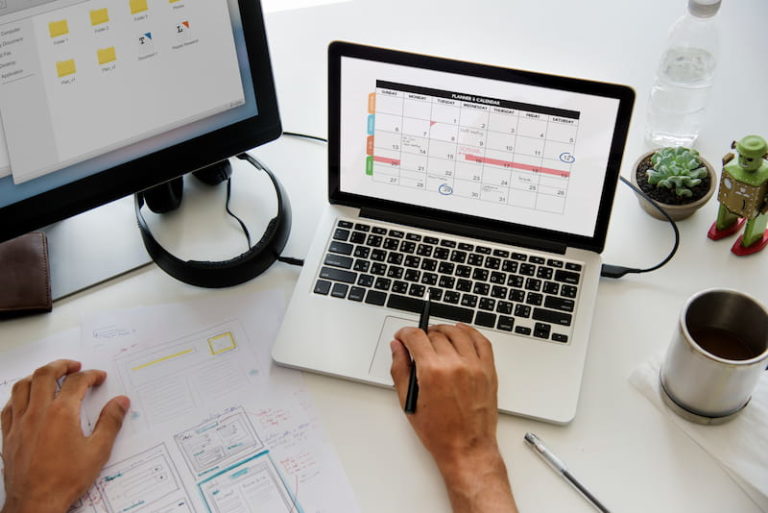How to manage time like an expert: rules, strategies and tips

Whether you are an entrepreneur who has just started or or if you have been with your business for years, it will be useful to analyze how you manage your time. Knowing if the work is being productive or if there’s a need to adjust the schedule to optimize the hours. Today we tell you rules, strategies and tips so that you discover how to manage time like an expert.
Golden rules
To achieve good time management and better organization, it is essential that you incorporate the following rules, related to planning and focusing on what is important.
Manage by objectives and priorities
First of all, you need to be perfectly clear about what you want to obtain, what is your (personal and professional) purpose. Start by defining your goals and build your agenda based on these conclusions.
The Pareto principle, also known as the 80-20 rule, states that eighty percent of the results you achieve in life come from only twenty percent of the activities you spend your time with.
Bearing this law in mind, spend the time on the tasks that interest you; that is, prioritize activities related to your goals. There are always exceptions, but you should know for sure what you spend your hours on.
Determine short, medium and long term goals
Before setting the tasks, allocate time to define objectives, decide which will be short-term, medium-term and long-term. So, for example, the activities that you write down for the week should be to meet the goals you have in the short term.
All this, as detailed as it may seem, will help you know how to use your time in a more productive way.
List of strategies for a well-organized day
- At the end of a workday, review the agenda with the tasks for the next day. If you think there is an activity or appointment that you will not be able to do, delete it from the agenda or assign it another date. If there is a task that you should do that is not covered, schedule a day and time for it.
- When you begin the day, check the agenda and confirm the decisions of the previous point.
- Check pending emails and other inboxes that may have messages that translate into high-priority tasks. Adjust the calendar based on it.
- Carry out the activities of the day following the established agenda, since it is the one that defines the major milestones of the day.
- If an unforeseen event arises during the day, such as a call or an email, include it in a task to execute at a given time. It is not necessary to attend to her at that moment, but, if so, we suggest that you reorganize the agenda.
- Avoid unread or pending emails in your inbox. If you can’t reply to an email right away, decide to postpone it so it appears when you can pay attention to it.
- If you have activities that are not solved with a single calendar entry, create a task and assign a follow-up date to it. For this, consider the use of a project management program, a tool that allows you to differentiate tasks with labels and organize them in different groups.
- Try to plan your meetings at the right time, between 15 and 30 minutes is ideal.
10 general tips
- Organize the week and the day, guide yourself by priorities. The Eisenhower matrix advises us, among other words, that what is urgent and important should be done as soon as possible. If it’s urgent, but not important, try delegating it. For the non-urgent and important, plan and then decide whether to delegate. But what is not urgent and not important, delegate it directly or delete it from the agenda.
- Delegate whenever possible.
- Measure which tasks take the most time and decide if it is really necessary; analyze if you can optimize the time of the task or delegate its execution.
- Write down the day and time of EVERYTHING (meetings, tasks, appointments, etc.). Do not leave anything unplanned, assign a place in your agenda to each pending.
- Focus your attention on each activity to be carried out, do not accept interruptions (except for minimal situations, such as a quick consultation).
- Keep an orderly workspace, both the place and the physical elements, such as documents and digital sites.
- Set schedules: it is useless to work more than eight hours a day and be inefficient, because that is not sustainable over time.
- Never forget that the fundamental thing is to maintain a good balance between work and leisure in order to have a low level of stress and be more productive.
- If you feel like you need more time, try to start the day an hour earlier.
- Complement the use of the digital calendar with a project manager that helps you have a global vision of your daily work.
Before closing, it is worth highlighting that to manage time like an expert the main key is to set goals and priorities. Following this, the rest will be easier. You will take care of urgent tasks first, without taking your focus away from what is truly important. In short, take advantage of MyTaskPanel to organize your activities and optimize the time you have.
